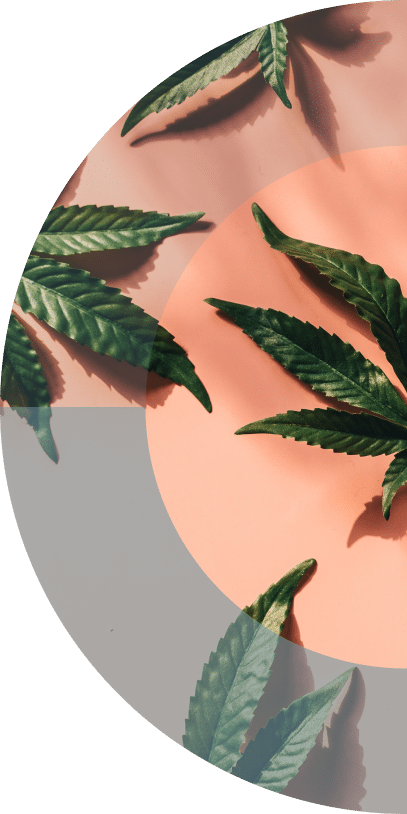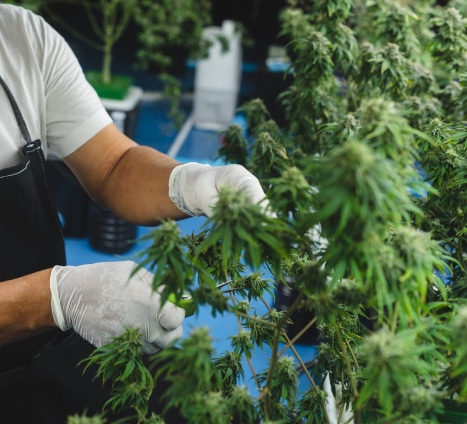How to Get a Cannabis License in New York
The State of New York shows promising results from legalizing adult-use cannabis, but the industry is trickier than you think. While the use of both medical and adult-use cannabis is permitted, the selling criteria aren’t similar.


This article offers a detailed rundown of how you may obtain a New York cannabis license. Keep reading to determine the general requirements and procedures based on New York’s applicable state and federal laws.
Cannabis License Regulations
Each business related to cannabis in New York must attain a license from the Office of Cannabis Management (OCM). These licenses are transferable subject to the board’s approval, and ownership of different licenses is permitted in specified circumstances.
There are different types of New York cannabis licenses that you can opt for. These include:
- Cultivator
- Processor
- Cooperative
- Distributor
- Retail Dispensary
- Microbusiness
- Delivery
- Nursery
- On-site Consumption
The OCM has clearly stated that:
- No individual can simultaneously possess both a cultivation and retail adult-use cannabis license.
- NY-licensed dispensaries cannot sell tobacco products.
How to Obtain a Cannabis License?
The process of applying for and receiving a New York dispensary license isn’t complicated, but there’s a lot to consider. Here are the general steps involved in obtaining a marijuana business license:
Note: As of 11th August, Conditional Adult Use Cannabis Licenses (CAURD) have been barred by the court. Once they are reopened, you can use the following steps to apply for your license.
Research and Prepare
Before making any investments or committing to a game plan, every applicant should understand the ground realities of cannabis sales in NY. Officially, adult-use sales began in December 2022 and were supported by medical cannabis dispensaries in the state.
Later on, the foundation for recreational dispensaries was set but saw little progress. The Conditional Adult-Use Retail Dispensary (CAURD) license was introduced under this bracket, however, it limits the number of applicants through the conditions stipulated by the law.
CAURD applicants receive priority for licenses and applications for non-CAURD dispensaries are expected to open soon (with no estimated date disclosed).
So, the first step is getting familiar with the process for obtaining a CAURD license, such as the eligibility, documentation, and fee requirements. You can easily find this information and much more on the government’s official website.
Once you’re reassured that you meet the conditional aspects of the license, you can begin working on the next step.
Develop a Solid Business Plan
To convince the OCM that your cannabis businesses will succeed, you need a comprehensive business plan showcasing your commitment.
You can give a detailed account of what your expectations are and what you’ve envisioned. However, keeping a realistic outlook will work in your favor.
Your Business Plan Should Include:
While you may not be required to gather every single document we’ve mentioned, doing so will help your case.
- Executive Summary: Who you are as a company and your vision.
- Company Description: Management, Organizational structure, Organization of the team, etc.
- Operating Agreement.
- Market Analysis: Market and Competitor Analysis.
- Strategies: Compliance, marketing, and sales strategies.
- Financial Details: Budgets and other financial projections.
- Security: General security measures, risk management strategies, etc.
- Appendix: Extra documentation.
Note: Considering the importance of your business plan for obtaining the license, it’s best to consult professional assistance for both legal and business aspects. This advice is crucial for those who are new to the Cannabis industry in New York.
Assemble the Necessary Documentation
Before filing your application, gathering the right documentation takes quite some time. So, you should start collecting forms, evidence, and reports well before you plan on applying.
The basic documents required by the Office of Cannabis Management in New York are similar for each type of license (Dispensary, Cultivator, or Processor). However, there are different requirements for each so you should only collect paperwork for the particular category that interests you.
The specified list of documents includes:
- Evidence of being justice-involved (Certificate of Disposition or relevant court documents)
- Financial documents (Tax records, proof of financing, etc.)
- Proof of Significant Presence/Residence (Bank account, tax docs, property documents, etc.)
- Ownership record of business
- True Party of Interest (TPI) disclosure forms
- Business plan
- Applicant’s personal finance history
Much of your information will be collected through the online form, but you should possess the following documents for your convenience throughout the process.
- Proof of identification
- Proof of residence in the State of NY
- List of all share owners and stakeholders
- Local jurisdiction permits
- Proof of a surety bond (if required)
Note: You should only submit supporting documents based on their relevance. If you’re a social and economic equity applicant, you might have to submit some additional documents.
Submitting the Application
Once you’ve completed preparing for the application, you can move toward filling out the application form online. It will be located on the New York State Business Express (NYBE) website.
While you’re at it, ensure that you have all the necessary material available before you begin filling out the form.
The Cannabis business license applications from New York State are comprehensive, so you should set aside at least an hour or two to complete it. There are many steps where you may need to refer to legal documents, other government-issued certificates, and such, so you should fill out each component carefully.
Note: Before starting your application, reviewing the mockup application document uploaded by the state government is best. It shows you all the questions included in the form and details such as where files should be uploaded, what step you’ll pay the fee at, and much more.
Application Fees
While applying for a license from any category, you have to pay a $2000 nonrefundable fee. This licensing fee is part of the application, and the review process doesn’t begin until the office has received it via cheque. There is no exemption for the application and license fee.
You must pay an application fee per application you submit. So for example, if a cultivator wants to become a distributor as well, they’ll pay a $2000 fee separately as part of the distributor license.
Once your application has been accepted and you’re a licensed retailer, you have to pay further fees with varying deadlines. You can find details regarding your license type and its registration/continuation fees through the relevant government websites.
Note that in New York, Hemp business licenses and Cannabis business licenses are separate. Hence, the application fee for a hemp dispensary will vary from a cannabis one.
Application Review and Compliance Inspection
Once your application is submitted and the required fees are paid, your application moves into the screening phase. The OCM board members will begin checking each application and reviewing them based on their criteria.
The New York regulations choose qualified applicants based on a scoring system. The exact rubric for each scoring category is unknown, and there are special points for certain conditions. The system thus helps the board select the highest-scoring candidates who will be granted a license and be allotted their regional preference.
You may be asked for further documentation at some point, or some form of verification for the information you’ve provided. Other than that, you’re not required to do anything in the waiting period. The review period may take a few months, and you’ll be updated about the results on your application portal.
You may be subject to compliance inspections before or after you receive your license, so it’s important to be well-versed in state and county cannabis regulations. You must strictly comply with all relevant laws and adult-use cannabis regulations or risk losing your well-deserved dispensary in New York.
Receiving the Final License
Congratulations! You’ve been accepted as a candidate to receive the provisional license for running your cannabis dispensary in New York. Once you’ve received the green light and have finalized your location, you have 12 months to complete all remaining application requirements in the second leg of the process.
You now have the Guidance documents from the government to begin fine-tuning your coming business operations according to the regulations.
Remaining Compliant with State Regulations
The state authorities have clearly stipulated that awarded licenses can and will be revoked if the concerned party has gone against the local cannabis law. So, your relationship with compliance laws should get stronger as your business flourishes.
Remaining compliant isn’t a difficult task if you keep a regular check on notifications by the OCM and other regulatory authorities. You should also do your part and keep the authorities updated on developments in your operations.
Remember that being compliant with regulations is the best decision you can make, as it safeguards you and your business against operational risks and other external threats.
Final Thoughts
The Office of Cannabis Management in New York has worked hard to streamline the process for obtaining a Cannabis business license. Numerous government sources explain the steps and requirements in detail, to support applicants and new business owners.
Currently, no further licenses are being granted in the state. However, you should expect the applications to open soon, and you’ll be informed of the application deadline through the relevant government sources. Keep an eye out for future application windows, and start preparing beforehand to help you during your final application.